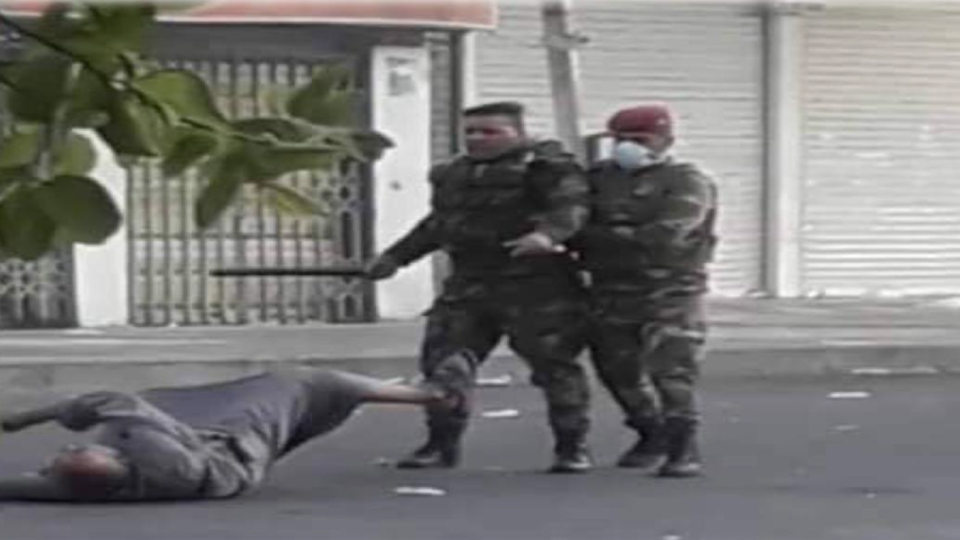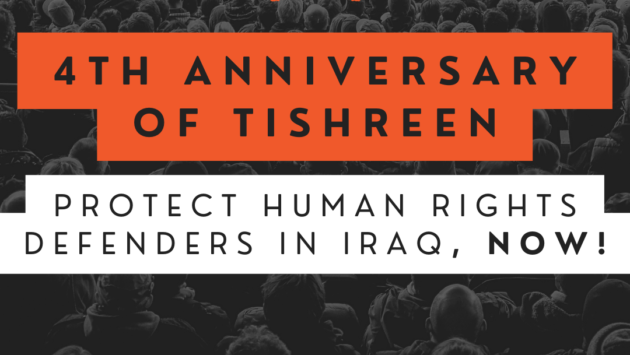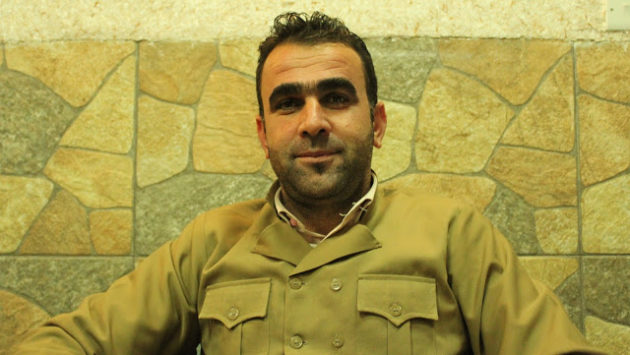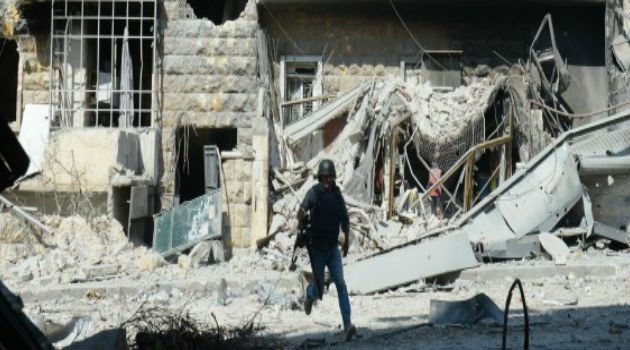The October Demonstrations in Iraq Raise Questions about the Credibility of Its Democracy, a New Report Monitors Violations Against the Demonstrators
How did the demonstrations in Iraq begin? Who started the protests? Why are they happening now? What was the government’s position towards the demonstrators? Were the demonstrations in fact peaceful? What were the motives of the demonstrators? Many questions have been asked about the recent protests, and many have yet to be answered — some people remain confused and concerned about these events, especially those who did not witness the demonstrations firsthand.
The Whips of Repression report answers all these questions (see the full report here) and explores the violations committed by the Iraqi government and unknown armed groups against the demonstrators and the Iraqi population. This includes cutting off the internet and other means of communication, shooting live ammunition at demonstrators with the intent to kill, and even an assassination of demonstrator-activists inside their own home.
The most prominent recommendations are as follows:
- The Iraqi Government
- Join the 1998 Rome Convention to ensure that those who committed crimes against humanity do not receive international impunity, especially when their victims should be guaranteed their legal right to freedom of demonstration and peaceful assembly. In addition, the Iraqi government should expand its role in the field of criminal justice.
- Work to bring to justice those responsible for abuses by law enforcement officials, particularly those involved in the deliberate killing of demonstrators. These individuals should be put on trial in the Iraqi military court.
- Hold legally accountable any individuals who exploited the right to demonstrate and assemble peacefully by committing criminal offenses, such as burning official and semi-official institutions.
- Refrain from pursuing any demonstrators who participated in the protests by blocking access to vital and strategic streets (this is particularly relevant to the Ministries of Justice and the Interior).
- Vote to repeal the 2003 Rally and Demonstration Law passed by the Coalition Provisional Authority (this is particularly relevant the Iraqi parliament).
- Approve the law of freedom of peaceful assembly and demonstration (this is particularly relevant the Iraqi parliament).
- Issue a statement pledging not to prosecute peaceful demonstrators and to cancel any pledges they may have made about not participating in future demonstrations, pursuant to the right to freedom of peaceful demonstration and assembly (this is particularly relevant to the Prime Minister and the Ministries of Justice and the Interior).
- Refrain from prosecution of any human rights and fundamental freedoms monitors working in the field, including journalists and media personnel who have performed their moral duties and in accordance with valid local laws (this is particularly relevant to the Prime Minister and the Ministries of Justice and the Interior).
- Consider whether the compensation it has given to the families of the martyrs is in fact adequate and appropriate, and to recommend other mechanisms to increase compensation, such as offering options for granting them residential plots, guaranteed scholarships or other means of reparation.
- Increase flexibility with regard to the secrecy ceiling for the preliminary investigation procedures in order to ensure that the trials are public. The report writing committee is deeply concerned, even given the current law in force, about the procedures used by the Iraqi Ministry of Justice for investigating violations committed by both sides (i.e., protestors and security forces alike).
- Initiate a broad process of institutional reform which focuses on training law enforcement personnel (security forces) to respect human rights and fundamental freedoms, one which is guided by the laws already within the Iraqi Constitution that are relevant to domestic and international laws (this is particularly relevant to the Iraqi Ministry of Defense, the Ministry of Interior, and the security services associated with the general command of the Iraqi Armed Forces).
2- The Independent Commission for Human Rights and the Independent Commission for Human Rights in the Kurdistan Region of Iraq (UNHCR)
- The report writing committee calls on the UNHCR to issue a detailed report based on good and effective monitoring standards, including a final confirmation of a list of victims of the 1 October 2019 demonstrations in Iraq.
- The report writing committee draws the attention of the Independent Commission on Human Rights to the need to adopt partnerships at the international level aimed at providing advanced capacity-building trainings of human rights and fundamental freedoms.
- The Report Writing Committee invites the Independent Commission for Human Rights in the Kurdistan Region of Iraq to provide any form of technical support to the Independent Commission, civil society organizations in Iraq and monitors of the situation of human rights and fundamental freedoms.
3- United Nations and the Red Cross Committee
- The report writing committee strongly recommends that the United Nations, in particular the Office of the High Commissioner for Human Rights, provide full technical support to all Iraqi law enforcement agencies in their field of training to respect and ensure respect for human rights and fundamental freedoms in cooperation with the Government of the Republic of Iraq.
- The Report Writing Committee recommends to the Human Rights Council, which will oversee the implementation of the Universal Periodic Review of Human Rights in the Republic of Iraq, IRAQ UPR 2019, to ask the delegate of the government of Iraq about to comply with articles 19 and 21 of the International Covenant on Civil and Political Rights
- 1966 and the procedures followed by the Government of the Republic of Iraq with regard to Justice, accountability, reparation and institutional reform to realize and promote the right to fundamental freedoms.
- The Report Writing Committee recommends that the Office of the High Commissioner (with emphasis) needs to provide a high-level training to monitors of human rights and fundamental freedoms in the field so that they can perform their duties and responsibilities as required.
- The report writing committee suggests that the United Nations and the International Committee of the Red Cross (ICRC) include human rights monitors and observers working in the field with the right to be protected by the international emblem given the serious risks they may face in the field.
To see the full report, click here
The report was made by Peace and Freedom organization in Baghdad in cooperation with Al-Namaa Center for Human Rights – A Project of Iraqi Al-Amal Association




